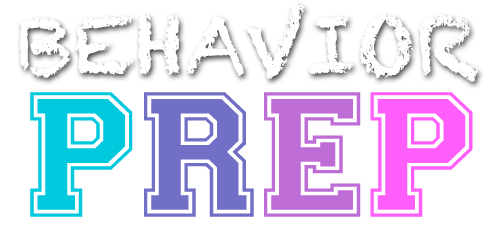E.1 Identify and apply core principles underlying the ethics codes for BACB certificants (e.g., benefit others; treat others with compassion, dignity, and respect; behave with integrity).
Identifying and applying core principles underlying the ethics codes for BACB certificants means understanding and adhering to the fundamental ethical values that guide behavior analysts in their professional work. These principles include ensuring the well-being of clients, treating others with respect, and maintaining honesty and integrity in all professional actions.
Benefit to Others
Behavior analysts should prioritize actions that benefit clients and contribute positively to their well-being.
Example: A behavior analyst chooses an intervention that improves a child’s communication skills. This will enhance the child’s ability to interact with family members and peers, promoting long-term success and independence.
Treat Others with Compassion, Dignity, and Respect
Behavior analysts should show empathy, value their client’s individuality, and treat them respectfully, ensuring their dignity is maintained.
Example: A therapist listens to a family’s concerns about their child’s behavior and ensures that the intervention plan respects the family’s cultural values and preferences.
Behave with Integrity
Behavior analysts must act honestly and ethically, ensuring transparency in their practice and avoiding any actions that could be misleading or unethical.
Example: A behavior analyst clearly explains a proposed treatment’s potential benefits and limitations to caregivers, ensuring they make informed decisions without exaggerating expected outcomes.
Professional Competence
BCBAs have a responsibility to maintain professional competence and strive for excellence in their practice. This includes staying up to date with the latest research, techniques, and best practices in applied behavior analysis (ABA) and related fields. BCBAs should continually enhance their knowledge and skills through ongoing professional development and seek consultation when needed.
Example: A BCBA regularly attends continuing education workshops to stay current on the latest research and intervention techniques for individuals with Autism Spectrum Disorder (ASD). This ensures they are using the most effective, evidence-based strategies in their practice.
Professionalism
BCBAs are expected to demonstrate professionalism in their conduct. This includes treating clients, colleagues, and others with respect, fairness, and dignity. BCBAs should maintain appropriate professional boundaries and avoid conflicts of interest that could compromise their objectivity or judgment.
Example: A behavior analyst maintains a calm, respectful demeanor during a heated meeting with a caregiver, showing patience and listening attentively to their concerns, even when emotions are high.
Legal and Ethical Compliance
BCBAs have an obligation to comply with all relevant laws, regulations, and ethical guidelines governing their professional practice. They should be aware of and adhere to the professional and legal standards specific to their jurisdiction.
Example: A BCBA ensures that they have the proper consent forms signed by a client’s legal guardian before starting any data collection or intervention, in compliance with both ethical standards and legal requirements.
Responsibility to Clients
BCBAs are primarily responsible for promoting their clients’ welfare and best interests. This includes ensuring clients’ rights, dignity, and autonomy are respected and protected. BCBAs must obtain informed consent, maintain confidentiality, and provide evidence-based, individualized, and culturally sensitive services.
Example: A BCBA decides to discontinue an intervention that has not shown meaningful improvement in a client’s behavior, even though the caregivers are satisfied with the status quo. The BCBA explains the need for a more practical approach, placing the client’s progress first.
Collaboration and Interdisciplinary Relationships
BCBAs should foster collaborative relationships with other professionals and stakeholders to promote effective and comprehensive services. They should communicate and collaborate with other professionals involved in the care of clients, respecting their expertise and contributions.
Example: A BCBA collaborates with a speech-language pathologist to integrate communication goals into the behavior intervention plan. The two professionals share information and strategies to ensure the client’s progress is aligned across disciplines.
Public Communication
BCBAs are responsible for communicating accurately and professionally with the public regarding behavior analysis and its applications. They should provide accurate information, avoid making false or misleading claims, and honestly represent their qualifications and credentials.
Example: A BCBA is invited to speak at a community event about ABA services. They provide clear, information about what behavior analysis can and cannot achieve, avoiding exaggerated claims about the effectiveness of interventions.
